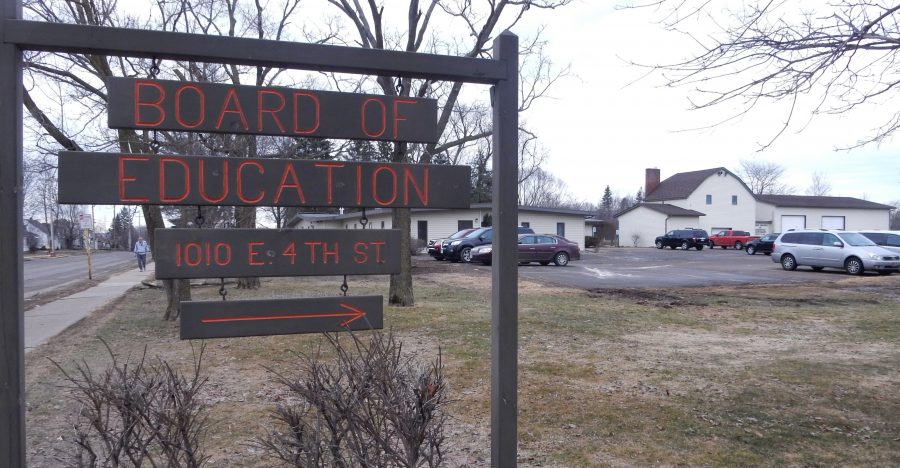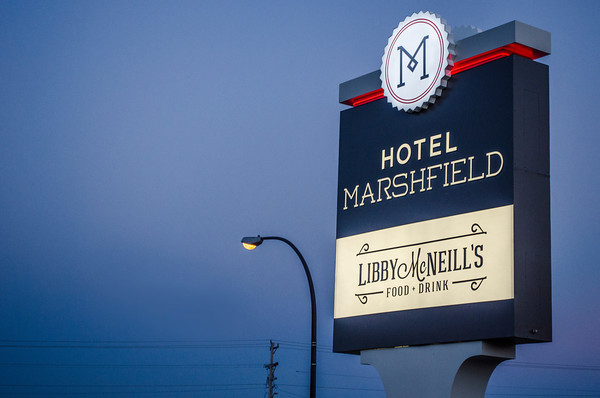Marshfield School District’s reliance on referendums

Why taxpayers are consistently asked for additional funds
By Adam Hocking
Editor
MARSHFIELD — While no school board action has been taken, recent history would suggest that Marshfield taxpayers could be asked to provide additional funds to the district in an override referendum that would appear on the Nov. 2016 ballot. If a referendum were approved by the board and supported by voters, it would take effect in the 2017-18 school year.
Since 2002, four referendums supporting the district’s operations have been passed. In addition, a separate referendum was passed funding the construction of a two new elementary schools — Madison and Washington — and major renovations to Lincoln Elementary and Marshfield High School.
In 2008 the override referendum passed with 55 percent approval, and in 2012 56 percent of voters supported the current referendum, which has supplied the district with an extra $2.5 million per year for the last four years. That latest referendum will expire at the end of next school year.
How we got here
Marshfield School District’s Director of Business Services Pat Saucerman said part of the reason the district has so consistently gone to referendum dates back to the governorship of Tommy Thompson, who held that office from 1987-2001.
During the early Thompson years, teacher unions were consistently negotiating significant salary and benefit increases in collective bargaining, which in turn led to pay raises for educators and higher property taxes for citizens. At that time districts also had the authority to raise taxes without limit to fund programs they wanted to add or amplify, pending school board approval.
Thompson’s administration implemented revenue caps that limited how much money a district could receive in taxes in a given year. The caps were implemented in 1994 and used that year’s budget for each school district as the basis for each district’s specific cap moving forward.
“The year revenue caps were implemented, Marshfield was a considerably low-spending district compared to other school systems who may have been adding programs or increasing resources. Because this became a baseline for future budget increases, Marshfield has been continually receiving less in tax revenue than other school districts of comparable size,” Saucerman said.
“That’s what’s going on here. That’s what really has driven so much the need of the referendum itself,” Saucerman said. The referendums have been called override referendums because they allow the district to raise money over the state-imposed revenue cap.
At the time the revenue caps were passed, the state committed to providing two-thirds of school districts’ funding, but in recent years those funds have eroded. About 51 percent of Marshfield’s 2015-2016 budget was funded from state sources, according to materials supplied by the district.
At the same time that revenue caps came into play, qualified economic offer (QEO) law was also implemented as a way to control how much teachers unions could bargain for in salary and benefits. QEO stipulated that if the district offered teachers at least a 3.8 percent increase in salary/benefits over the previous year, “then the teacher’s union has no right to go to mediation/arbitration,” Saucerman said.
Still, revenue growth in school districts could only increase by an amount the state determined, which Saucerman pegged at about 2-3 percent on average for Marshfield. QEO law did help to cap teacher wage and benefit increases, but those increases still grew at a larger percentage than did the district’s ability to raise revenue.
“With each passing year, … there’s always been what we call a structural deficit in our budget,” Saucerman said. “So for basically a good 15 years or so, … we were in this perpetual every-year erosion mode — cutting staff, cutting programs.”
QEO law was repealed in 2009, but when Act 10 was passed in 2011, Saucerman said teachers unions lost many of their rights in collective bargaining. Act 10 helped in bringing expenses more in line with available revenues, Saucerman said.
However, costs unrelated to staff expenses — Saucerman cited the district’s bus contract and utility costs as examples — are increasing every year at a rate higher than revenue growth. Saucerman said that Act 10 also significantly cut the amount of state aid coming into the district.
The here and now
The district’s current tax rate is $9.55 per $1,000 of assessed property value, which ranks on the low end of 20 central Wisconsin school districts on which Saucerman compiled data. Without the current referendum, the property tax rate would be $8.37, which, according to Saucerman’s calculations, would put Marshfield at the lowest tax rate of the 20 districts he examined.
According to a rough timeline provided by the district, the school board would likely vote on whether or not to go to a referendum in August of this year. For the referendum to pass, a majority vote is needed.
Leave a reply
You must be logged in to post a comment.






